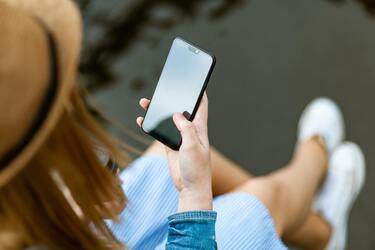Dirtier than toilet seats: why you should wash your hands every time you use smartphones

Smartphones have become an integral part of our lives. We carry them around, take them to bed, put them on the table during breakfast, lunch, or dinner. However, we don't even realize that we should wash our hands after using the phone just like we do after going to the toilet.
According to The Conversation, in addition to the fact that phones harm us by distracting us while driving or crossing the road, we can also pick up germs, bacteria, or viruses from gadgets.
Read also: Why you shouldn't take your cell phone to the toilet: the answer will surprise you
Scientists estimate that people touch their phones hundreds, if not thousands, of times a day. After the phone has been in their hands, almost no one goes to wash them.
"But given how disgusting and contaminated phones can be, it may be time to think more about mobile phone hygiene... A number of studies conducted on the microbiological colonization of mobile phones show that they can be contaminated with various types of potentially pathogenic bacteria. These include E. coli, which causes diarrhea, and staphylococcus aureus, which infects the skin, as well as actinobacteria, which can cause tuberculosis and diphtheria, and cytobacteria, which can lead to painful urinary tract infections," the publication writes.
The researchers also found Enterococcus, which causes meningitis, Klebsiella, Micrococcus, Proteus, Pseudomonas, and Streptococcus on the phones, all of which can have the same negative impact on people.
Studies have found that many pathogens on phones are often antibiotic resistant, meaning they cannot be treated with conventional medications. This is a concern because these bacteria can cause skin, intestinal, and respiratory tract infections.
Read also: How to free up space on your smartphone if it starts to slow down
Scientists have found that even if you clean your phone with antibacterial wipes or alcohol, microorganisms can still re-colonize it, which means that disinfection should be a regular process.
In particular, phones contain plastic and can store and transmit viruses, including COVID-19, rotavirus, influenza and norovirus, and intestinal infections.
Experts note that people need to start cleaning their phones regularly. In fact, the Federal Communications Commission actually recommends daily sanitization of your phone and other devices.
For example, use alcohol-containing wipes or sprays. They should contain at least 70% alcohol to disinfect phone cases and touchscreens and should be done daily if possible.
However, do not spray disinfectants directly on your phone, and keep liquids away from connection points and other openings on your phone. Absolutely avoid using bleach or abrasive cleaners. And wash your hands thoroughly after "cleaning".
There are other things you can do to prevent your phone from becoming a source of viruses. Do not share your phone with others if you have any infection or have not disinfected it. If children are allowed to play with your phone, disinfect it as soon as possible.
And get in the habit of putting your phone away when not in use and then disinfecting or washing your hands. You can also disinfect your phone charger occasionally.
Earlier, scientists warned that clouds can carry dangerous drug-resistant bacteria.
If you want to get the latest news about the war and events in Ukraine, subscribe to our Telegram channel!
